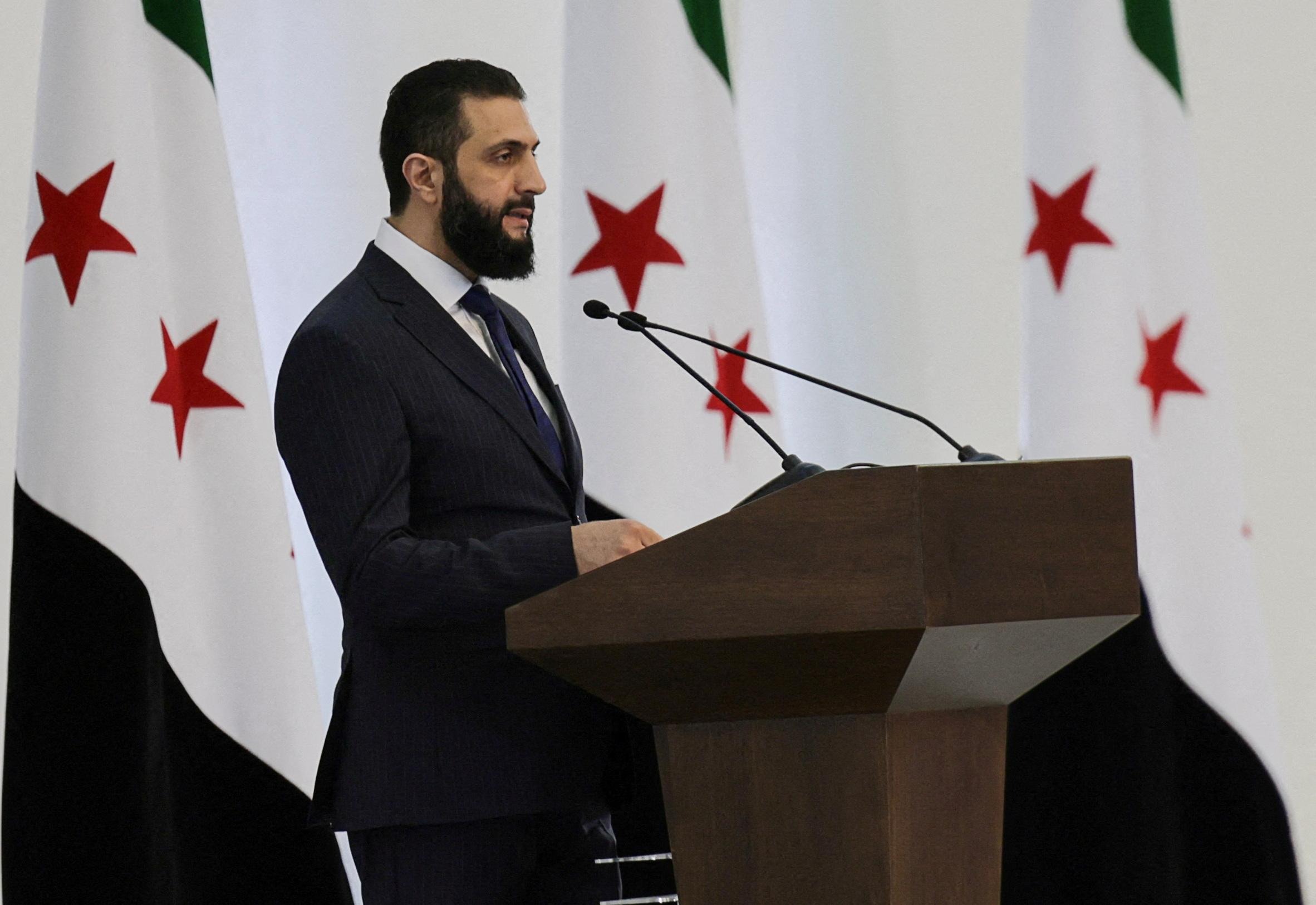Syria’s Islamist Hayat Tahrir al-Sham (HTS) promised to deliver a diverse, inclusive new government for the nation, and while some media reports are praising the new government unveiled today as mission accomplished, many are extremely unsatisfied at what passes for representation.
Syrian Kurdish group in particular are speaking out about this government simply offering more of the same, dominated by a single party and faction, despite the Kurdish SDF making a deal with the HTS very recently.
The 22-person cabinet includes not a single Kurd, likely one of the main sources of Kurdish consternation. The “diverse” representation amounts to a small handful of religious minorities in very minor ministries.

HTS leader Ahmed al-Sharaa | Image from Reuters
Yarub Badr, an Alawite, was given the transport ministry. Amgad Badr, a Druze, was given a potentially challenging post with the agriculture ministry. The protracted civil war has destroyed much of Syria’s limited agriculture infrastructure.
Hind Kabawat is the one getting the most attention from this presentation as a particularly inclusive government though. She’s the social affair’s minister, and simultaneously the only woman and only Christian included. She was previously working for the US Institute of Peace, which made headlines recently because the Trump Administration is firing them en masse.
The Kurdish groups pointed out that this cabinet leaves women strongly marginalized, despite being the country’s “largest social segment.” They called the announcement a “reproduction” of Assad-era governments where all the real power was closely controlled by the ruling Ba’athists.
In this case, it’s being centralized among Sunni Islamists loyal to the HTS and ruler Ahmad al-Sharaa. The overwhelming majority of top ministries went to such figures. Sharaa even consolidated several formerly significant ministries under a single umbrella term to allow him to give those to particularly close loyalists. Syria’s industry ministry, trade ministry, and economic ministry were all merged into one as the “ministry of economy and industry.” That portfolio went to the Assad government’s old economy minister, interestingly enough, who was one of the early defectors to the rebellion.
Perhaps the most glaring absence is the prime minister, as Sharaa simply didn’t appoint one. This suggests he intends to rule directly as president, which will likely substantially limit the powers of Syria’s parliament.


